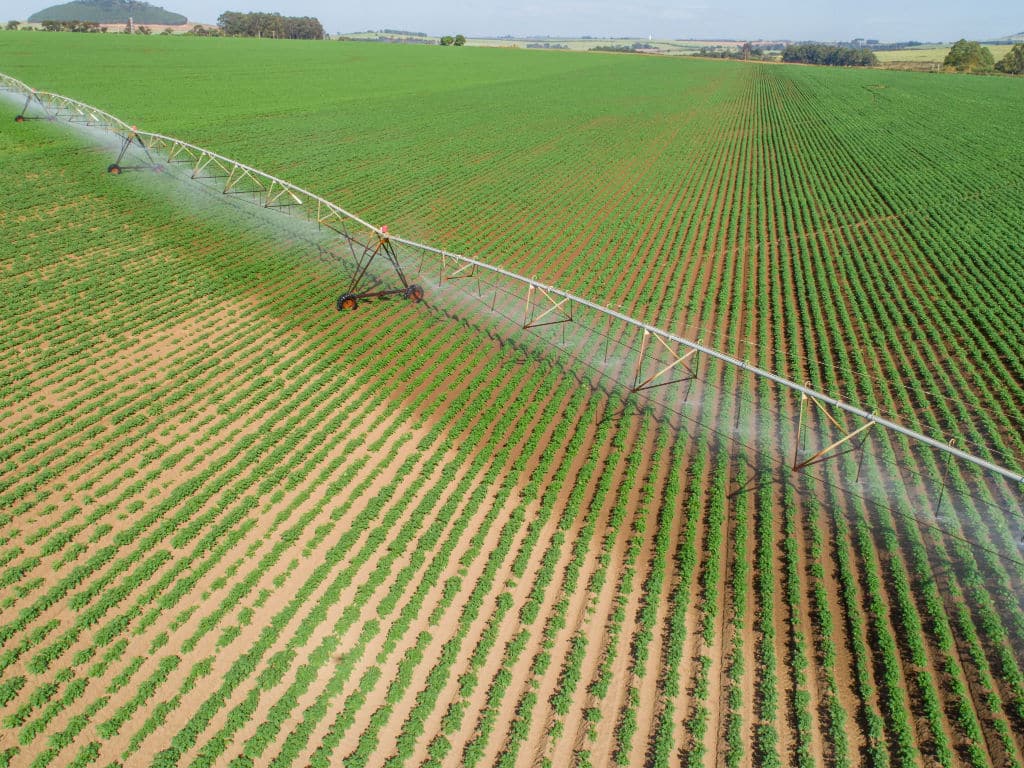In Namibia, Phase II of the ǁKaras Irrigation Project has been launched, some three years after the completion of its first phase which saw the construction of the Neckartal Dam. This phase of the project, which will be implemented under a public-private partnership (PPP), aims to enhance the supply of water to farmers in the ǁKaras region, known for its arid climate.
According to Namibia’s Minister of Agriculture, Water and Land Reform, Calle Schlettwein, some 5 000 hectares of grape, alfalfa (a fodder plant, very rich in protein used in livestock feed, ed. note) and date plantations will be covered by new irrigation systems.
Improving agricultural yields
The irrigation systems will be supplied by water pumped from the Neckartal dam, which will be commissioned in April 2020. The Italian company Salini Impregilo built the reservoir, which is 78.5 m high and 518 m long, forming a basin covering an area of 39 km2. The current retention capacity of the structure is 857 million m3 of water.
The completion of this component of the ǁKaras Irrigation Project, still referred to as the Neckartal Irrigation Scheme (NIS), will strengthen the water supply for farmers. In Namibia, about 70% of the population depends directly or indirectly on agriculture for their income and livelihood. This situation prompted the Namibian government to request the intervention of the World Food Programme (WFP) in February 2020 to provide an urgent response to the risk of famine in Namibia, exacerbated by the drought when 350 000 people were already at risk this year.
Read Also –
As part of the ǁKaras irrigation project, 3.5 MW is generated from a hydropower plant with two Francis turbines installed near the Neckartal Dam. The electricity is fed into the grid of the state-owned company NamPower.
Inès Magoum
